KARACHI: Participants during a media dialogue on ‘Gender Representation in Election Coverage’ highlighted lack of women representation at media platforms.
Hosted by the media monitoring oranisation, Uks Research Centre, at a local hotel here on Thursday, the talk made some insightful observations regarding the portrayal of women in the media during the 2024 elections.
According to the Uks director, they had taken the initiative of monitoring the media during the recent elections just like they had done during the 2013 and 2018 elections. “In our findings about the 2024 elections, we documented in our publication Gender Media Watch,” she said.
“It was in the light of our findings that we decided to convene a collaborative dialogue with partners and colleagues, including representatives from the All Pakistan Newspaper Society, Pakistan Broadcasters Association, Association of Electronic Media Editors and News Directors, the academia and civil society organisations to reflect on the lessons learned from our media monitoring exercise and chart a way forward for meaningful improvement in gender representation in media coverage,” she said, adding that they started work in January and carried on until after the elections.
News outlets urged to stand up and back women who are ‘making news’
During a presentation, Shahrezad Samiuddin from the Uks team said that their research included weekly monitoring of print, electronic and social media to track portrayal of women candidates. They monitored eight including four English newspapers, namely, Dawn, The News, The Nation and Express Tribune, three Urdu dailies, namely Jang, Ausaf and Mashriq and one Sindhi paper Ibrat. They also looked at news channels and social media. While looking at the news outlets, they also looked at the role of women journalists there.
Their findings showed more women announcers than reporters in electronic media and few women reporters in both English and Urdu print media.
Other findings included personality driven narrative focused on prominent women politicians and lack of coverage on specific women issues or challenges faced by female candidates. Women’s voices as experts in media coverage was scarce. There was an underrepresentation of women in current affairs talk shows indicating gender imbalances.
In social media, there was a disconcerting trend of sexual innuendos targeting women politicians and journalists suggesting an urgent need for increased digital vigilance and measures to counteract online harassment.
An interesting dialogue ensued. Senator (r) Javed Jabbar, also present on the occasion, asked a pertinent question about whether the scarcity of women in important positions in the media industry was a case of sidelining them or was it that there were not many women in the media to begin with? “How many media proprietors or director news here are women?” he also asked.
Lubna Jerar of the International Federal Union of Journalists pointed out that usually women made big news there if they did or said something blasphemous. She also said that media houses needed to stand up and back women making news.
Dr Riaz Shaikh, dean of the Faculty of Social Sciences and Education at Szabist, suggested that Uks expanded its research from watching how the media covered the elections to examining the manifestos of political parties and what they planned to do for women’s emancipation.
It was mentioned during the discussion by the Uks director that women were making news. “For instance there is the mountaineer Nyla Kiani, who is amazing, but few people know about her achievements,” she said, adding that newspapers should write editorials about women more often.
Senior journalist Khuda Bux Arbab said that he had spent 40 years in the media and for 30 or those years he had been the edition incharge at various newspapers. “News is news. It gets selected on merit. I want to tell you that nobody on the desk discriminates in news on the basis of gender,” he said.
The Uks director pointed out to him that even though that might be the case, ‘you need to make an effort to see women making news’.
Sana Ali of the Pakistan Press Foundation also said that there was room for women experts of various topics that were discussed in the newspapers or current affairs shows.
Published in Dawn, May 17th, 2024















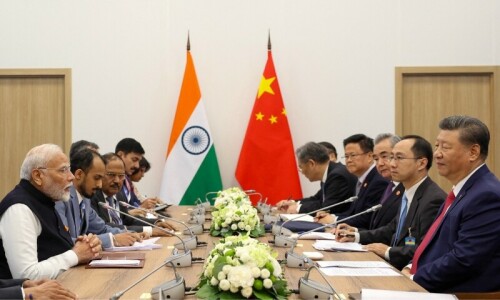
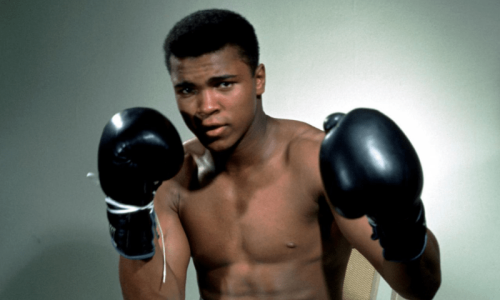
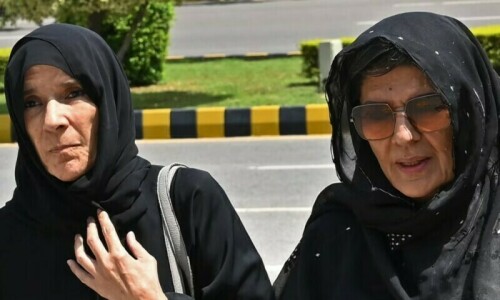
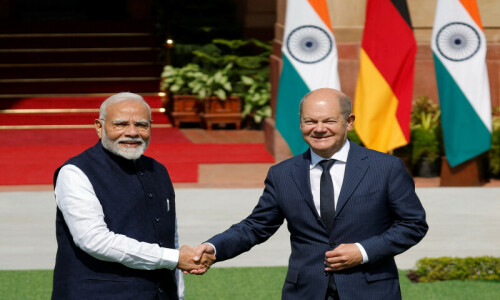
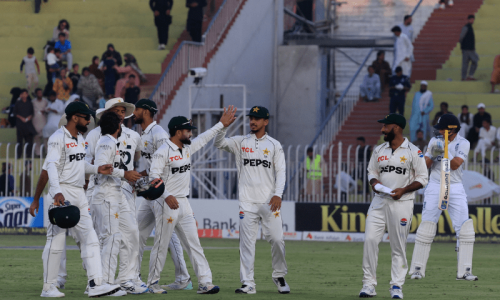
























Dear visitor, the comments section is undergoing an overhaul and will return soon.